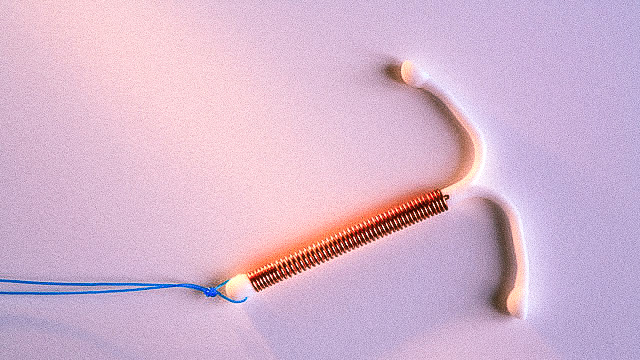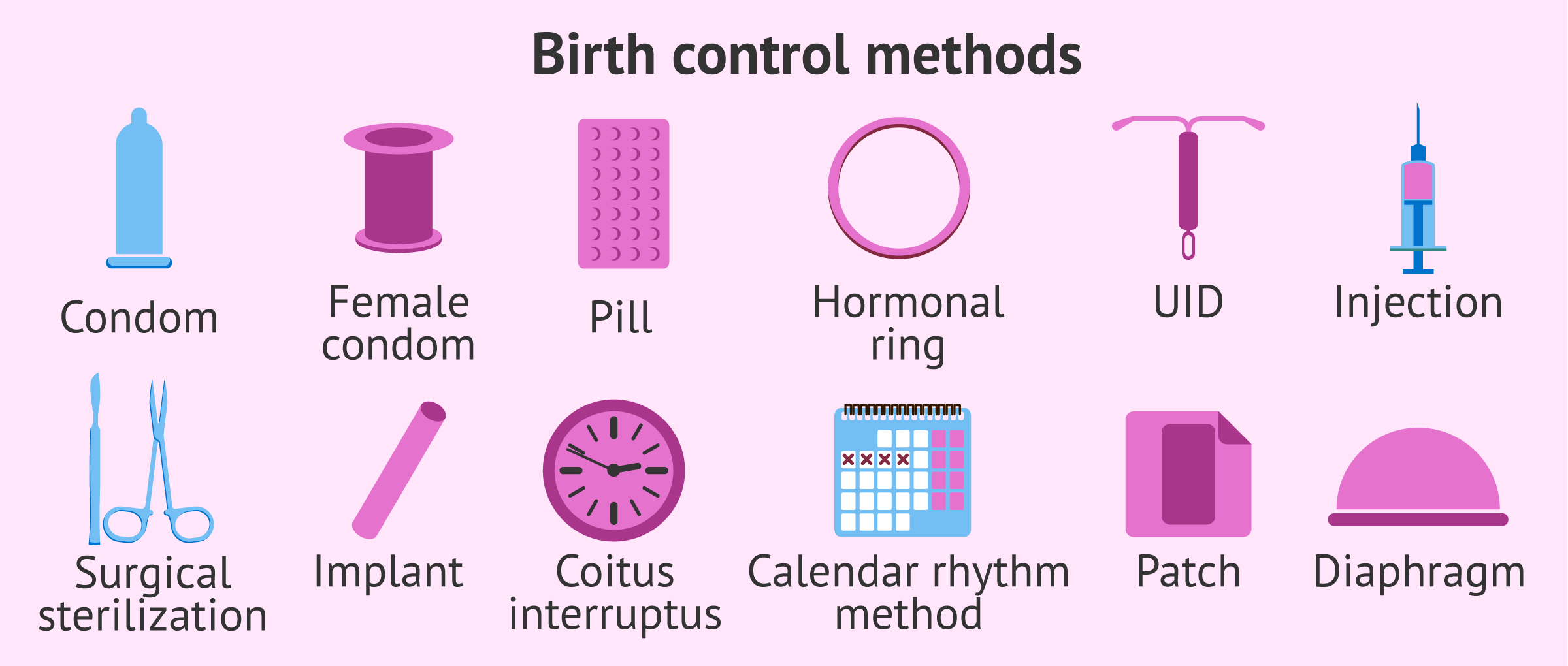Health
HOW EFFECTIVE ARE BIRTH CONTROL?

In the world we live in today, birth control has become common, not only among adults but also among teenagers.
This is to prevent unwanted pregnancy among teenagers and young adults who are not ready for parenthood, and also among married couples who do not want more children but also want to enjoy their sex lives as couples.

IUD contraceptive implant
This is how effective birth control is, especially birth control injections and contraceptive implants.
According to health experts, birth control methods are up to 99% effective when used correctly.
Birth control is the method or medicine taken to prevent pregnancy. This can involve using pills, vasectomy and condoms, and other medically approved methods.
According to the World Health Organization (WHO), as of 2021, there were 1.9 billion women aged 15–49 worldwide. About 1.1 billion had a need for family planning but only 874 million are using modern contraceptives.
One of the main reasons for this – some women use it to avoid unintended pregnancies or to stop having more children after reaching their desired family size.

Condom contraceptive
However, birth control methods also have side effects that may affect health.
And this includes:
1. Irregular menstrual cycles: Taking birth control can frequent your period but it’s a period of time before your hormones get used to it.
2. Headaches: There’d be headaches to deal with but that will subside later.
3. Breasts Changes such as tenderness or swelling.
4. Rarely, hormonal methods can increase the risk of stroke, or heart attack, especially in women with other risk factors.
So while you are using any of the birth control methods; condoms, contraceptive implants or even injections, you should pay attention to how your body responds and ask your doctor any important questions.

Birth control methods
Birth control, especially the implants, has failed a few women because the implant was not replaced on time.
Nevertheless, there are benefits of birth control methods here are:
1. It reduces painful periods and cramps.
2. Reduces acne by helping the hormones that cause excess oil which results in spots clothing and formation.
3. Supports family planning and informed decisions.
4. Helps couples enjoy intimacy without constant worry.
5. Provides peace of mind for those who are highly fertile.
Birth control methods are effective, but it is important to follow a doctor’s guidance. Consulting a qualified gynecologist ensures you get the method best suited to you.
Health
Workout Routines That Support Bones Health

Strong bones depend on more than just calcium or supplements. Research shows that bones respond to physical stress: when muscles and weight-bearing activities challenge the skeleton, bone tissue becomes denser and stronger. To protect skeletal health over the long term, exercise should combine weight-bearing activity, resistance training, and balance work. Together, these exercises address the main risk factors for fractures: low bone density, weak muscles, and poor coordination.

Photo Credit – Google
Weight-bearing activity doesn’t need to be extreme to be effective. Regular brisk walking around neighbourhoods or local parks strengthens hips, legs, and spine, while climbing stairs or light jogging improves lower-body density. Dance classes, including Afrobeat or traditional Nigerian dances, provide varied movement patterns that engage muscles and improve coordination. Starting with 15–20 minutes per session, three to five days a week, and gradually increasing intensity or duration can deliver measurable benefits.

Photo Credit – Google
Resistance training plays a key role in maintaining strong bones. Gradually increasing weight or resistance helps muscles and bones adapt. Exercises such as squats and deadlifts target the hips, thighs, and spine, while lunges and step-ups build strength in the lower body and promote functional movement. Push-ups, pull-ups, and shoulder presses strengthen the upper body and spine. Two to three sessions per week covering all major muscle groups are sufficient. Free weights, resistance bands, or bodyweight exercises can all be effective depending on what equipment is available.

Photo Credit – Google
Balance is equally important because falls are a leading cause of fractures. Single-leg stands and heel-to-toe walking improve stability and coordination, while yoga, Tai Chi, or mobility exercises enhance control and complement other workouts. Integrating balance with strength and weight-bearing exercises provides a complete approach to bone health.
Common mistakes include relying solely on low-impact cardio such as swimming or cycling, which has little effect on bone density, and attempting high-impact exercises without preparation, which can increase injury risk. Effective routines should be planned, progressive, and performed consistently to build resilience safely.

Photo Credit – Google
A sample weekly schedule could include strength-focused exercises on Monday, such as squats or step-ups, deadlifts or hip-hinge movements, and push-ups or shoulder presses. Wednesday could focus on weight-bearing activity and balance through brisk walks, single-leg and heel-to-toe drills, and light dynamic movements. Friday can target functional strength with lunges or carries using household objects, core stability exercises, and stretching or yoga. This cycle can be repeated weekly, increasing load or complexity gradually.
Strong bones require intentional, evidence-based exercise. By combining weight-bearing activity, resistance training, and balance work, Nigerians can maintain bone density, reduce fracture risk, and improve overall skeletal resilience. Starting at your current fitness level, increasing load progressively, and including balance exercises will help protect bones for the long term.
Health
Disordered Eating Vs. Eating Disorder: Experts Explain The Differences And When To Seek Help

Disordered eating and clinical eating disorders are not interchangeable. Disordered eating refers to irregular or emotionally influenced habits around food: chronic dieting, skipping meals, rigid food rules, occasional binge episodes or persistent preoccupation with calories, weight or body shape. These habits may shift, but when repeated over time they often point to growing vulnerability.
Clinical eating disorders, by contrast, are diagnosed mental-health or medical conditions marked by persistent, patterned behaviours that impair physical health, mental wellbeing or daily functioning. Conditions such as anorexia nervosa, bulimia nervosa, binge‑eating disorder and other specified feeding or eating disorders fall into this category.

Image: Google
Evidence from Nigerian research confirms that disordered eating attitudes and risk for eating disorders are present among young adults and adolescents. In a study of more than 1,050 undergraduates from two higher‑education institutions in Lagos, roughly 16 percent scored positive on the EAT‑26 screening tool for disordered eating attitudes.
At a university in Ile‑Ife, a survey of female undergraduates found that 17.1 percent were classified as at high risk for eating disorders, based on the same screening instrument.
A more recent analysis among female undergraduates in Lagos found a lower prevalence of disordered eating (about 5 percent). Still, the study flagged a strong association between body-image dissatisfaction, body‑mass index (BMI) and disordered eating attitudes.
Adolescents are not exempt: a survey of 13 to 19-year-olds in Ibadan used screening tools to assess disordered eating behaviours and feeding/eating disorders. Results showed that 28.2 percent exhibited disordered eating behaviours, and a significant portion also met screening criteria for feeding/eating disorders.

Image credit: Google
Clinical, clearly diagnosed cases have also been documented. There’s a recorded instance of a 20-year-old undergraduate at a Nigerian university diagnosed with anorexia nervosa showing that what may start as dieting or food anxiety can escalate into serious health and psychiatric risk.
Because disordered eating and eating disorders exist within the Nigerian context, distinguishing between them matters. Persistent preoccupation with food, weight or body shape; regular dieting, bingeing or purging; emotional distress tied to eating; and disruption of everyday life are all red flags. When those signs persist, seeking professional support whether nutritional counselling, psychological therapy or medical care becomes essential.
Health
The Exercise That Keeps You Younger

If you’ve ever met someone in their fifties who moves like they’re still in their twenties, it’s likely they’ve discovered the simple habit that keeps the body from giving in to age: regular movement.

While fitness trends keep changing, one form of exercise has stayed constant in its benefits: strength training. It’s not about building bulky muscles or chasing a perfect body. It’s about keeping your bones strong, your joints stable, and your metabolism from slowing down. After the age of 30, the body naturally begins to lose muscle each year. That’s why everyday tasks, like climbing stairs or carrying groceries, start to feel heavier. Strength training helps reverse that.

Research supports this claim. People who lift weights or engage in resistance exercises have lower risks of diabetes, heart disease, and cognitive decline. But beyond the science, it’s about how it makes you feel. Nigerians juggling work, traffic, and family life know how draining each day can be. Even short sessions of body-weight squats, lunges, or push-ups a few times a week can recharge you better than most expensive wellness fads.

It also boosts your mood. Physical activity releases chemicals that help clear mental fog and lift your energy. It’s your body’s way of proving it still has strength to give.
You don’t need a gym to start. A mat, a pair of dumbbells, or even two water bottles will do. The goal is to stay consistent, to keep your body active enough to stay responsive.
Each push, lift, or stretch is a reminder that staying young isn’t about denying age; it’s about moving through it with strength.
-

 Sex & Relashionships5 months ago
Sex & Relashionships5 months agoSigns You Have Abandonment Issue and How to Heal
-

 Movies5 months ago
Movies5 months agoMovie Review: Task Official Trailer
-

 Top Xclusiv5 months ago
Top Xclusiv5 months agoItalian Designer Giorgio Armani Dies at 91
-

 Music4 months ago
Music4 months agoAyra Starr – Hot Body Video Review
-

 Celebrity Style4 months ago
Celebrity Style4 months agoEniola Badmus Creates a Deck-of-Cards Visual in Photoshoot
-

 Fashion5 months ago
Fashion5 months agoFive Mini Outfits From Esther Morgan That Are Screenshot Worthy
-

 Celebrity Style4 months ago
Celebrity Style4 months agoTwo Ways to Wear a Suit, According to Liquorose
-

 Celebrity Style3 months ago
Celebrity Style3 months agoMercy Aigbe Keeps it Sharp in Ivory Dress
-

 Bags4 months ago
Bags4 months agoFrom Kano to Chelsea: Winston Leather Marks a New Chapter in Luxury
-

 Fashion5 months ago
Fashion5 months agoMimi Yina Brings Street Style to Life in Denim













